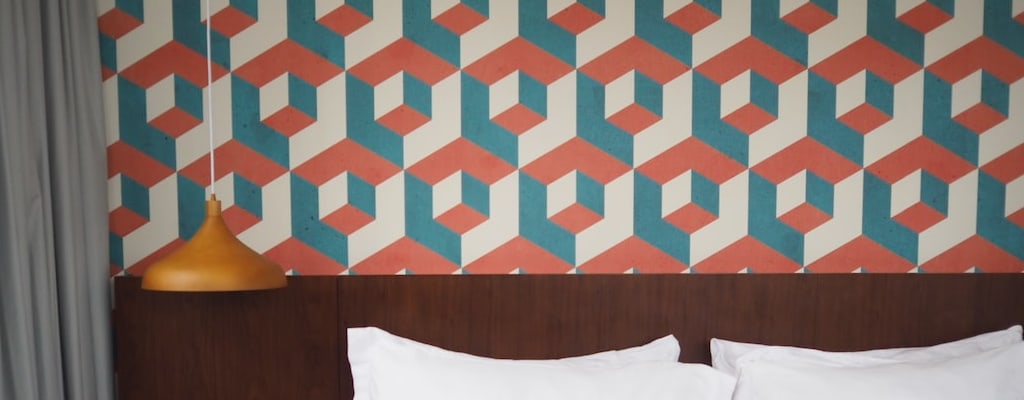bed in: Idiom Meaning and Origin
What does ‘bed in’ mean?
The idiom bed in means to establish oneself firmly and comfortably in a new environment or routine.

Idiom Explorer
The idiom "settle in" means to become comfortable or familiar with a new environment or situation. It implies the process of adapting and feeling at ease in a new place or job.
The idiom "in bed" is used to describe being in a state of involvement or deep understanding of a particular subject or activity.
The idiom "camp out" means to stay overnight in a temporary shelter or outdoors, often for recreational purposes or as an alternative to traditional accommodation.
The idiom "be down with" means to be in agreement with or supportive of something or someone.
In the idiom "bed of roses," the word "bed" symbolizes a situation or state, while "roses" represent comfort, happiness, and ease. The phrase is used metaphorically to describe a situation that is pleasant and easy to deal with, often implying that it is not reality and may entail difficulties or challenges.
The idiom "beddy-bye" is a playful and childish way of referring to the act of going to bed or getting ready for sleep.
The idiom "beauty sleep" refers to the restful sleep that is believed to contribute to one's physical appearance and overall attractiveness.
The idiom "bear with" means to be patient and tolerant, especially in a challenging or difficult situation.
The idiom "be around" means to exist, be present or available, or to have been in a particular place for a period of time.
The idiom "bear oneself" means to behave or conduct oneself in a particular way in a given situation.
Linguistic Revelations
The term "bed in" has its roots in the British military, where it was commonly used during the late 19th century. It refers to the process of making a bed comfortable and familiar through use and habit. This idiom can also be understood metaphorically to describe the process of becoming settled or accustomed to a new environment or situation.
One possible explanation for the origin of "bed in" is its association with the military practice of breaking in or conditioning new beds. Soldiers would make their beds comfortable by shaping the mattress and bedding to their liking using their bodies and weight. This process of "bedding in" ensured a more restful and comfortable sleep for the soldiers.
The idiom "bed in" has since been adopted and adapted in various contexts. It is frequently used to describe the process of familiarizing oneself with new equipment, systems, or procedures in the business world. For example, it can refer to getting accustomed to new software or technology. It can also be used in a broader sense to describe the process of becoming settled or adjusted to a new situation or environment.
Furthermore, "bed in" can be used figuratively to describe the process of establishing or solidifying a position, belief, or habit. It implies a gradual and intentional integration that leads to a sense of familiarity and comfort. In this sense, the phrase conveys a notion of stability and endurance.
The exact etymology of the idiom "bed in" remains uncertain, but its usage and meanings have evolved over time. From its military origins, it has expanded to encompass various aspects of adaptability, habituation, and stability. The phrase vividly depicts the process of settling into a new situation or environment, highlighting the importance of familiarity and comfort through repetition and experience.
The idioms "settle in," "in bed," "at home," "camp out," and "beddy-bye" are all related to the idiom "bed in." These idioms share a common theme of getting comfortable and familiar in different contexts.
The idiom "settle in" is often used to describe the process of becoming accustomed to a new place or situation. It implies a gradual adjustment and feeling of being at ease. Whether it's moving to a new house or starting a new job, "settling in" involves making oneself comfortable and familiar with the surroundings.
Similarly, the phrase "in bed" can have multiple meanings, but in the context of being related to "bed in," it can refer to the process of physically lying in bed and getting comfortable. It also metaphorically represents the idea of being settled and relaxed.
"At home" is another idiom associated with the concept of being comfortable and familiar. When someone feels "at home" in a place or situation, they feel relaxed and at ease because they are accustomed to it. It implies a sense of belonging and familiarity.
The idiom "camp out" can be linked to "bed in" as it shares the notion of making oneself comfortable in a temporary setting. When someone "camps out," they set up a campsite and make it a comfortable and familiar environment for themselves. This can involve organizing the sleeping area, setting up a tent, and making sure everything is in order.
Lastly, the phrase "beddy-bye" is another idiom related to "bed in." This informal term is often used to refer to going to bed, specifically in a playful or lighthearted context. It reflects the idea of getting settled and ready for sleep.
The idiom "bed in" originated in the British military and refers to the process of making a bed comfortable and familiar through use and habit. It has since been adapted and adopted in various contexts to describe the process of becoming settled or accustomed to new environments or situations. The related idioms "settle in," "in bed," "at home," "camp out," and "beddy-bye" all share a common theme of getting comfortable and familiar in different contexts. The usage and meanings of "bed in" have evolved over time, highlighting the importance of familiarity and comfort in the process of settling into new situations.
Example usage
Examples of how the idiom bed in can be used:
1. After moving into their new home, the family needed some time to bed in and adjust to their new surroundings.
2. The new employee is currently going through a training period to bed in with the rest of the team.
3. It took a few weeks for the newly installed software to bed in and start working smoothly.
More "Vocabulary" idioms



